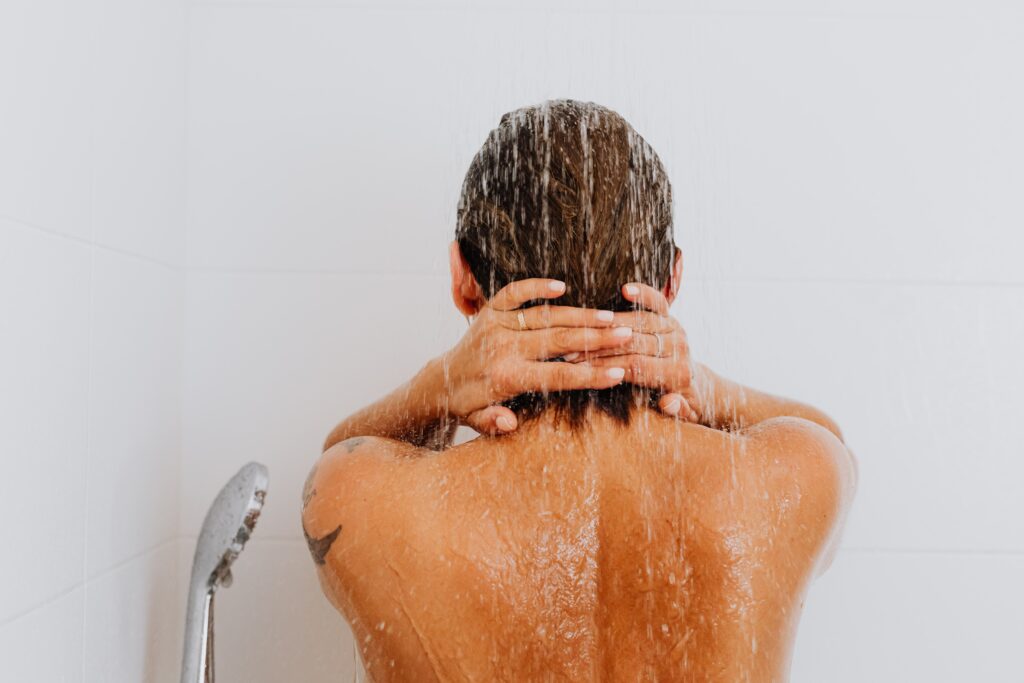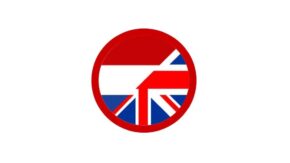
Shower in Dutch? “Douche” is the word for shower in Dutch. To shower? “To shower” in Dutch is “douchen”. Taking a shower? “Taking a shower” in Dutch can be translated as “een douche nemen” or “douchen”.
What are some of the everyday common words that are related to taking a shower in Dutch? That is a very good question to ask yourself when you are learning new Dutch phrases and words that you are not familiar with yet.
10 Common Words for Shower In Dutch
Here are some everyday common words related to taking a shower in Dutch: 1) Zeep - soap 2) Shampoo - shampoo 3) Conditioner - conditioner 4) Handdoek - towel 5) Badmat - bath mat 6) Douchegel - shower gel 7) Washandje - washcloth 8) Haardroger - hair dryer 9) Doucheputje - drain 10) Waterkraan - water tap

Why is water not included in the above list?
You might ask. That is another good question to ask yourself when learning new Dutch phrases and words in a new area. Since water is an essential element when it comes to taking a shower, you are absolutely right to ask yourself that question.
Water should have been included in the list of everyday common words above related to taking a shower in Dutch. In Dutch, water is “water”, so it’s a very basic and common word that is used in everyday life.
How to translate water in Dutch
The water? In Dutch, “the water” is “het water”. For example, “I am going to turn on the water” can be translated as “Ik ga het water aanzetten” in Dutch.
Cold water? “Cold water” in Dutch is “koud water”. Example? “I prefer to take a shower with cold water” can be translated as “Ik geef de voorkeur aan douchen met koud water” in Dutch.
The cold water? In Dutch, “the cold water” is “het koude water”. Another example? “Please turn on the cold water” can be translated as “Zet alsjeblieft het koude water aan” in Dutch.
Hot water? “Hot water” in Dutch is “warm water”. For example? “I like to take a shower with hot water” can be translated as “Ik hou ervan om te douchen met warm water” in Dutch.
The hot water? In Dutch, “the hot water” is “het warme water”. For example? “Could you please turn off the hot water?” can be easily translated as “Kun je alsjeblieft het warme water uitzetten?” in Dutch.
Why is it “het warme water” and not “Het hete water?
You might ask yourself again. Since the word “hot” means “heet” in Dutch. You’re absolutely right that the word “hot” can be translated to “heet” in Dutch, and it is also sometimes used to refer to “hot water”.
However, in the context of taking a shower, the more commonly used term for “hot water” in Dutch is “warm water”. This is likely due to the fact that the temperature of the water used in showers is typically not boiling hot, but rather warm or slightly hot.
That being said, it is not incorrect to use “heet water” to refer to hot water in other contexts, such as boiling water for tea or coffee. In those situations, “het hete water” would be the correct way to say “the hot water” in Dutch.
How to translate bath in Dutch
Bath? “Bath” in Dutch can be translated as “bad”. For example, “I like to take a bath before going to bed” can be translated as “Ik neem graag een bad voordat ik naar bed ga” in Dutch.
The bath? In Dutch, “the bath” is “het bad”. For example, “I filled the bath with hot water” can be translated as “Ik heb het bad gevuld met warm water” in Dutch.
How to differentiate bath and shower in Dutch
What is the difference between the word “bath” and the word “shower” in Dutch? The main difference between the words “bath” and “shower” in Dutch is that a bath involves soaking in a container of water, while a shower involves standing under a stream of water that falls from a nozzle.
In Dutch, “bad” specifically refers to a container of water in which a person can soak and relax, while “douche” refers to the showering process where water is sprayed from a nozzle over the body to clean it.
So, if you say “Ik ga in bad” in Dutch, it means that you are going to take a bath, while if you say “Ik ga douchen”, it means that you are going to take a shower. Notice how many words you need to construct each of the two sentences.
How to take a shower In Dutch
If you would like to learn how to take a shower in Dutch, here is a step-by-step guide on how to say "to shower" in Dutch. 1) Start with the subject pronoun, such as "ik" for "I", "jij" for "you" (informal), or "u" for "you" (formal). 2) Add the verb "douchen", which means "to shower" in Dutch. For example, "douchen" in Dutch means "to shower" in English. 3) Add any other words you want to use, such as adverbs or prepositions. For example, "Ik ga nu douchen" means "I am going to shower now", and "Ik heb vanochtend gedoucht" means "I showered this morning". Here are a few more examples: 1) "Jij moet elke dag douchen" means "You have to shower every day". 2) "Hij gaat douchen na het sporten" means "He is going to shower after exercising". 3) "Zij doucht altijd met warm water" means "She always showers with warm water".
How to use “douchen” with personal subject pronouns
Now that we have learned some words and phrases from the above lessons that are related to taking a shower and also bath, it is time to use it in the personal subject pronouns.
Which is my favorite method to learn new words and phrases in Dutch. Below are my examples of how to use “douchen” with all the personal subject pronouns in Dutch:
How to use douchen in Dutch singular 1) Ik douche - I shower 2) Jij doucht - You (informal) shower 3) U doucht - You (formal) shower 4) Hij doucht - He showers 5) Zij doucht - She showers 6) Het doucht - It showers How to use douchen in Dutch plural 7) Wij douchen - We shower 8) Jullie douchen - You (plural) shower 9) Zij douchen - They shower
For example, “Wij douchen elke ochtend” means “We shower every morning”, and “Zij douchen altijd samen” means “They always shower together”.
If you have enjoyed this lesson, and you would like an update click the blue button below and sign up for my newsletter.
000 Most Common Dutch Words in Context
2000 Most Common Dutch Words in Context Want to support us? Learn how to use the 2000 most common Dutch words in the right context: 1) It is one of my favorite Dutch language books. 2) It will allow you to get fluent with new Dutch words. 3) Increase your Dutch Vocabulary with 2000 Dutch Phrases When you buy this Dutch vocabulary book, we receive a small commission from Amamzon.com. www.dutch-phrase.com/2000-words

